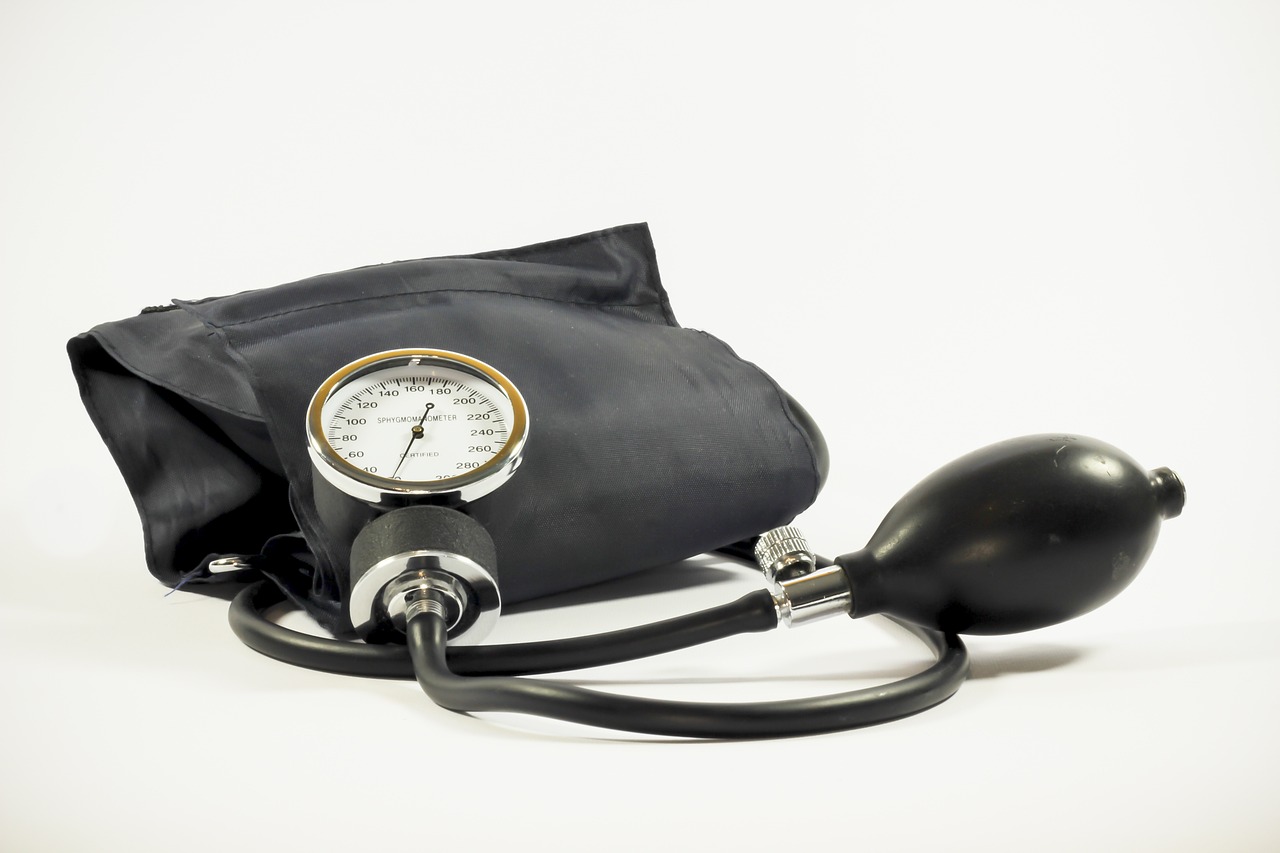Navigating the hustle and bustle of modern life, it's no wonder our bodies sometimes send SOS signals in the form of stress hormones, like cortisol. Cortisol, dubbed the "stress hormone," plays a crucial role in our body's response to stress, but when levels remain high for too long, it can wreak havoc on our overall health. If you've been feeling off and can't quite put your finger on why it might be time to consider whether high cortisol is the culprit.
1. Feeling Wired but Tired
Ever lay in bed exhausted but your brain is running a marathon? That's the classic sign of high cortisol. Your body is on high alert, making you feel too wired to sleep despite feeling physically tired.
 Image by Sammy-Sander from Pixabay
Image by Sammy-Sander from Pixabay
2. Weight Gain Around the Midsection
If you're noticing more belly fat despite a healthy diet and exercise, cortisol could be to blame. High cortisol levels can lead to weight gain, especially around the midsection, as your body tries to protect itself by storing fat.
 Image by 👀 Mabel Amber, who will one day from Pixabay
Image by 👀 Mabel Amber, who will one day from Pixabay
3. Mood Swings and Irritability
Feeling like you're on an emotional rollercoaster? High cortisol can mess with your mood, causing you to feel irritable or depressed without a clear reason. It's like your emotions are more volatile than usual.
 Image by StockSnap from Pixabay
Image by StockSnap from Pixabay
4. Frequent Colds and Infections
Finding yourself getting sick more often than usual? Elevated cortisol can suppress your immune system, making you more susceptible to colds, flu, and other infections. It's like your body's defense system is taking a nap.
5. Difficulty Concentrating
Struggling to focus on tasks at hand can be a sign of high cortisol. This hormone can affect your brain's ability to concentrate, making you feel like you're constantly in a fog or suffering from brain fog.
 Image by SnapwireSnaps from Pixabay
Image by SnapwireSnaps from Pixabay
6. Unexplained Acne or Skin Issues
Suddenly battling breakouts or other skin issues? High cortisol levels can increase oil production in your skin, leading to acne or other skin conditions. It's like your skin is reacting to the stress you feel inside.
 Image by Kjerstin Michaela Noomi Sakura Gihle Martinsen Haraldsen from Pixabay
Image by Kjerstin Michaela Noomi Sakura Gihle Martinsen Haraldsen from Pixabay
7. Muscle Weakness
If you've been feeling weaker than usual or notice muscle loss, high cortisol could be the culprit. Cortisol can break down muscle tissue, leaving you feeling weaker and less toned than before.
 Image by Engin Akyurt from Pixabay
Image by Engin Akyurt from Pixabay
8. High Blood Pressure
Elevated cortisol levels can lead to higher blood pressure as your body's stress response kicks into overdrive. It's as if your body is constantly in fight-or-flight mode, even when there's no danger.
 Image by Ewa Urban from Pixabay
Image by Ewa Urban from Pixabay
9. Sugar and Carb Cravings
Find yourself reaching for sugary snacks or carbs more often? High cortisol can trigger cravings for quick energy sources, like sugar and carbs, as your body seeks to refuel from the constant state of alert.
 Image by -Rita-👩🍳 und 📷 mit ❤ from Pixabay
Image by -Rita-👩🍳 und 📷 mit ❤ from Pixabay
10. Disrupted Sleep Patterns
Lastly, if your sleep pattern is all over the place, cortisol could be disrupting your natural sleep-wake cycle. You might find it hard to fall asleep, stay asleep, or you wake up too early, leaving you feeling unrested.
Reducing cortisol isn't just about eliminating stress; it's about nurturing a lifestyle that allows your mind and body to find peace amidst the chaos. Here are 10 effective strategies to lower those high cortisol levels.
1. Prioritize Quality Sleep
Aiming for 7-9 hours of good sleep each night is key. Turn your bedroom into a serene sanctuary, keep a consistent sleep schedule, and avoid screens before bed to improve your sleep quality and lower cortisol levels.
 Photo by Kinga Howard on Unsplash
Photo by Kinga Howard on Unsplash
2. Incorporate Regular Exercise
Regular, moderate exercise is a cortisol buster. Whether it's a brisk walk, yoga, or a dance class, moving your body helps reduce stress hormones and release endorphins, making you feel happier and more relaxed.
 Image by StockSnap from Pixabay
Image by StockSnap from Pixabay
3. Adopt a Balanced Diet
Eating a balanced diet rich in fruits, vegetables, lean protein, and whole grains can stabilize your blood sugar and cortisol levels. Try to minimize sugar and processed foods, which can spike cortisol.
 Image by Devon Breen from Pixabay
Image by Devon Breen from Pixabay
4. Practice Mindfulness and Meditation
Mindfulness and meditation can significantly reduce cortisol by promoting a state of calm and presence. Just a few minutes a day can help you become more aware and less reactive to stress.
5. Engage in Deep Breathing Exercises
Deep breathing exercises are a quick and effective way to reduce cortisol. Techniques like the 4-7-8 method can calm your nervous system and promote relaxation, anytime and anywhere.
 Image by Anke Sundermeier from Pixabay
Image by Anke Sundermeier from Pixabay
6. Maintain Social Connections
Strong relationships and social support can buffer against stress. Spending time with loved ones or engaging in community activities can lower your cortisol levels and enrich your life.
 Image by StockSnap from Pixabay
Image by StockSnap from Pixabay
7. Limit Caffeine and Alcohol Intake
While a cup of coffee or a glass of wine might seem like good stress relievers, in excess, they can increase cortisol levels. Moderation is key to keeping your cortisol in check.
 Image by Elias Shariff Falla Mardini from Pixabay
Image by Elias Shariff Falla Mardini from Pixabay
8. Set Boundaries and Learn to Say No
Overcommitting can skyrocket stress and cortisol. Learning to set healthy boundaries and comfortably saying no can reduce stress and keep your cortisol levels balanced.
 Image by Myriams-Fotos from Pixabay
Image by Myriams-Fotos from Pixabay
9. Take Up a Hobby
Engaging in hobbies or activities you enjoy can be a great stress reliever. Whether it's painting, gardening, or playing an instrument, hobbies can distract from stressors and lower cortisol.
 Image by Bodo Bertuleit from Pixabay
Image by Bodo Bertuleit from Pixabay
10. Seek Professional Help
If stress and cortisol levels are overwhelming, don't hesitate to seek professional help. Therapists can provide strategies and support to manage stress, reduce cortisol, and improve your overall well-being.
 Photo by Christina @ wocintechchat.com on Unsplash
Photo by Christina @ wocintechchat.com on Unsplash
KEEP ON READING

The Most Popular Chocolate Bars in the USA

The Most Popular Candies in the USA








